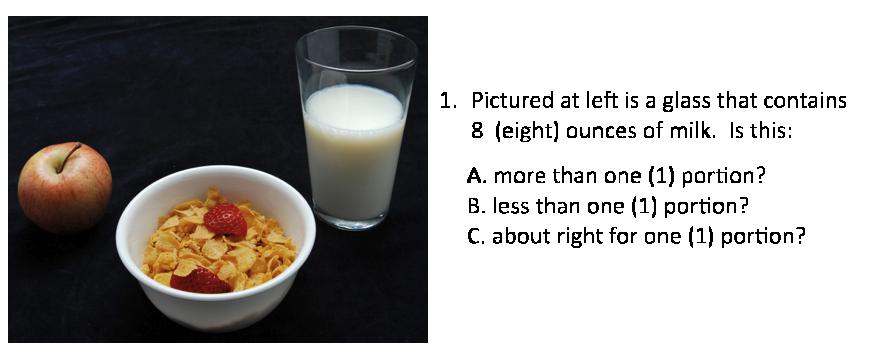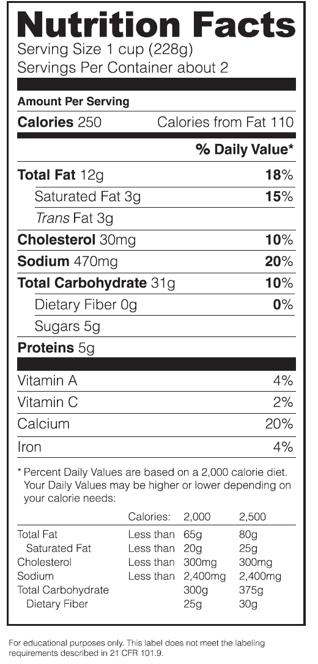Health literacy is important to taking care of your health, and nutrition literacy is vital to choosing healthy foods for cancer prevention. But it’s not just a matter of reading comprehension, according to the author of a study presented as a poster at our research conference yesterday.
Try these:
1.
2. If calories are equal for one serving of each food, which provides the most healthful nutrients overall?
A. Applesauce with no sugar added
B. an apple
C. applesauce with no sugar added is about equal to an apple in nutrition
3.. If you are trying to eat fewer than 500 mg of sodium per meal, how many cups of this food (Nutrition label) can you eat if you eat nothing else at the meal?
A. 1 cup
B. 2 cups
C. 3 cups
D. 4 cups
Those were three of the questions used by Heather Gibbs, PhD, at the University of Kansas Medical Center. “Literacy is a functional skill, so nutrition literacy is different than health literacy because we’re also looking at what knowledge and skills are needed in order for people to choose a healthy diet,” said Gibbs.
The three arms of her study included a group of 25 survivors who were currently in a weight-loss program; another group of 30 who were not in a program; and 17 women who were at high risk for the disease but not survivors.
Gibbs remembered one participant who read a question about finding a point of information on a Nutrition Facts label. “She read the question out loud perfectly,” Gibbs says. “But she didn’t understand how to find the answer on the label.”
Other skills Gibbs cites are evaluating fresh foods for quality, such as how much meat was marbled with fat or what colors of vegetables indicated. Participants were also asked whether they used the information on the front of labels, where marketing terms like “natural” or “organic” might make them assume a product is healthy for them; or what information they looked for if they were trying to manage their weight.
The hope is to develop a tool to help dietitians use their time educating people about the things they don’t know about or understand, says Gibbs.





